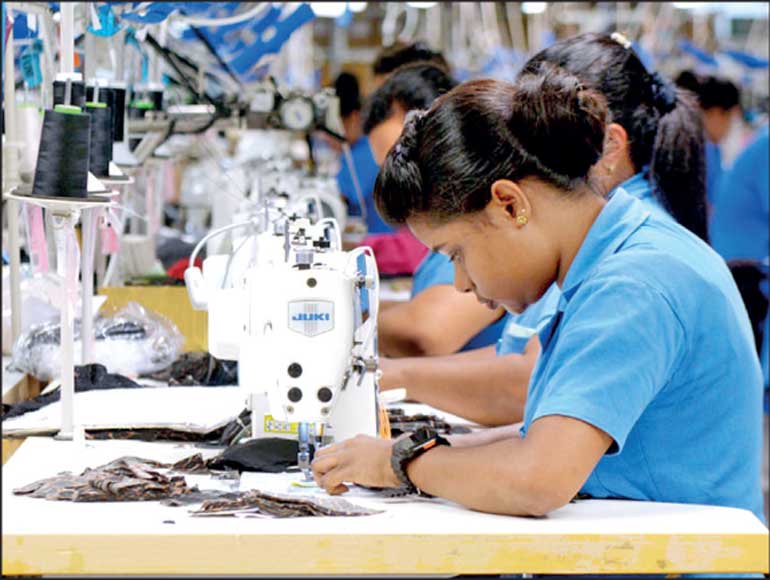Sunday Feb 22, 2026
Sunday Feb 22, 2026
Wednesday, 20 August 2025 12:17 - - {{hitsCtrl.values.hits}}

The UK High Commission in Colombo said yesterday that new trade liberalisation rules coming into effect in 2026 will allow Sri Lankan garment manufacturers to source up to 100% of garment inputs from any country worldwide while maintaining tariff-free access to the UK.
The High Commission, in a statement, said the new rules will give Sri Lankan garment manufacturers “unprecedented gains”. By simplifying rules of origin, the reforms enable Sri Lankan manufacturers to compete more effectively in global markets while maintaining preferential access to the UK, it said.
The news could not have come at a better time for Sri Lanka. The 20% reciprocal tariff unilaterally imposed by the US could cost the export sector $ 634 million and put nearly 16,000 garment sector jobs at risk, according to a recent Institute of Policy Studies (IPS) report. The think tank said the 20% US tariff translated to a 36.8% effective tariff on Sri Lankan garment exports.
The UK is the second-largest export market for Sri Lankan garments, accounting for close to 15% of total exports. Sri Lankan garment exports increased 8.95% in the first half of 2025 to $ 2.4 billion, with exports to the UK increasing 6.45% to $ 366 million.
The garment export sector relies heavily on imported inputs. According to Central Bank data, after fuel, garment inputs are the highest imports to Sri Lanka at $ 1.3 billion in the first half of 2025. The fuel bill for this period was $ 2 billion.
Under the UK’s Developing Countries Trading Scheme (DCTS), Sri Lanka receives benefits as an ‘Enhanced Preference’ country. Current rules allow tariff-free access to Sri Lankan garments if inputs are sourced from the South Asian region, along with restrictions around processing.
The liberalised rules will now offer Enhanced Preference countries, including Sri Lanka, the same product-specific rules for apparel (chapters 61 and 62) as lower-income countries covered by the scheme, such as Bangladesh, which have ‘Comprehensive Preferences’.
British High Commissioner to Sri Lanka Andrew Patrick said: “We are pleased to confirm further details of the reforms to the DCTS. I know from my discussions with the JAAF, Sri Lankan manufacturers, and UK brands that the changes are likely to have a significant positive impact on the garment sector in Sri Lanka, while helping lower prices on the UK high street.”
Council for Business with Britain President Mark Surgenor said: “The upcoming changes to the DCTS will further strengthen Sri Lanka’s exports to the UK. This is a particular success story for Sri Lanka’s garment industry, where the proposed changes will mean that more of Sri Lanka’s garment exports to the UK could qualify for zero tariffs. The Council for Business with Britain is very supportive of these changes and looks forward to continuing our work with businesses to promote trade between the UK and Sri Lanka.”
The Developing Countries Trading Scheme provides preferential trading arrangements for 65 developing countries. Sri Lanka holds Enhanced Preference status, offering significant tariff reductions across multiple product categories.
Aside from the changes to product-specific rules associated with garments, the UK announced in June the creation of a new Asia Regional Cumulation Group of 18 countries that Sri Lanka can source from for all other products eligible to access the UK’s preferential tariff benefits. Input sourced from another country in this regional group will be considered as originating in Sri Lanka, where the final processing or manufacturing takes place. Increasing cumulation provisions and adding value to exports in this way support countries to be competitive by allowing more products to qualify for preferential tariffs.
Pic by Pradeep Pathirana